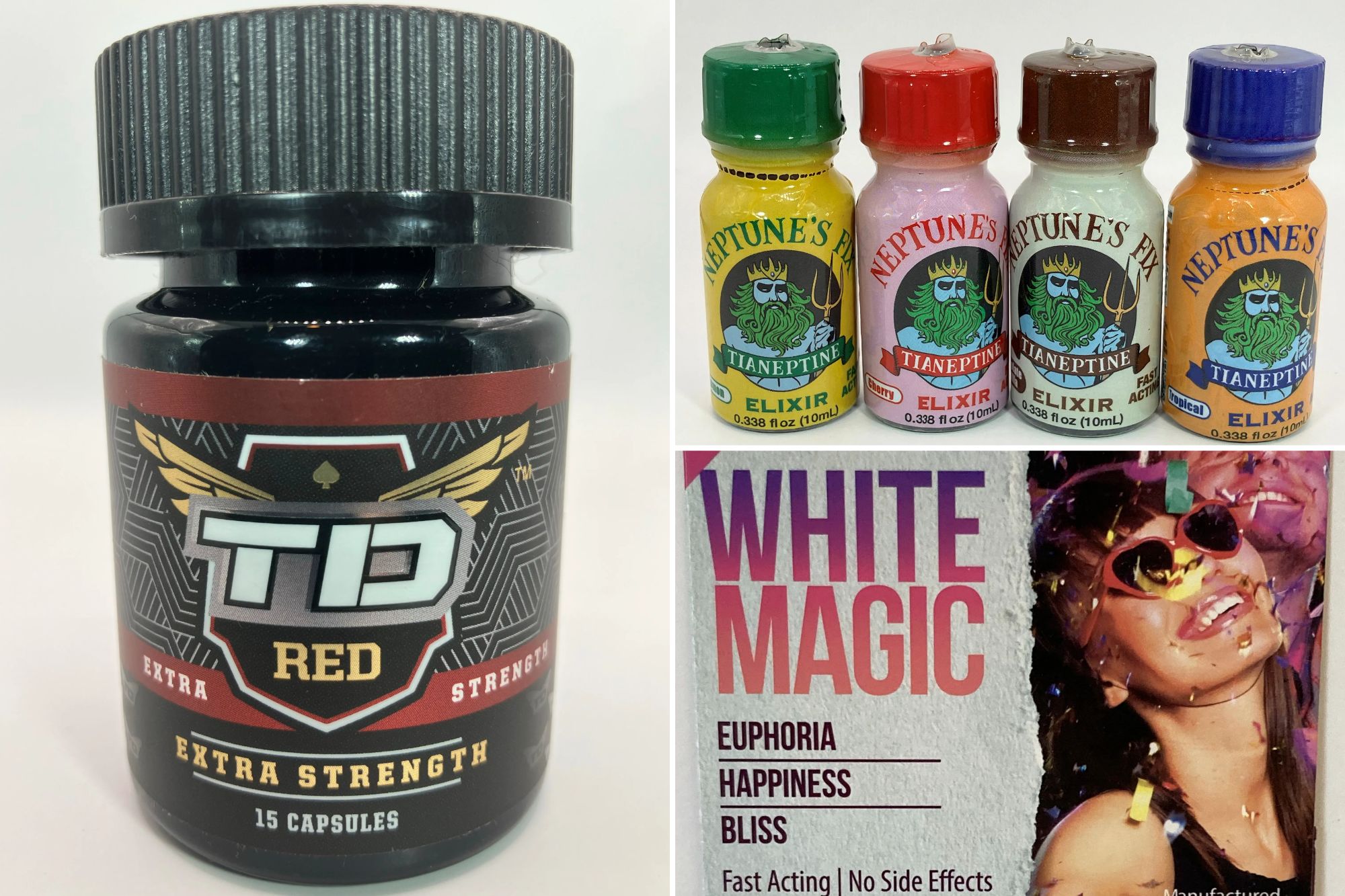Washington – Health officials want to think twice before buying one of these small brightly colored bottles that are often sold in gas stations, convenience shops and smoke shops.
Sometimes called “gas station heroin”, products usually market as cognitive energy or energy features, but they actually contain Tiaianptí, a non -approved drug that can be addictive and have risks of severe side effects.
North -American poison control centers have a constant increase in calls linked to the drug for more than a decade. And last month, the food and drug administration sent a warning to health professionals on “the magnitude of the underlying danger of these products”.
Here’s what to know about the heroine of the gas station.
How are these products sold in the United States?
Tiaseptine is approved in several foreign countries as an antidepressant, usually as a low dose pill taken three times a day. But it has never been approved by the FDA for any medical condition in the United States
In addition, the drug cannot be legally added to food and drinks or selling as a dietary supplement, which the FDA has repeatedly warned by North -American companies.
However, underground companies come Tiaptines in various formulas, often with brands such as Zaza, Tianaaa, Pegasus and TD Red. Although this is technically illegal, the FDA is not expected to be added to supplements and drinks.
“It is a kind of this gray area of consumer products or supplements, where the contents are not regulated or proven in the way they would be with a medication,” said Dr. Diane Calello, of the New Jersey Poison Information and Education System.
Last year, Calello and his colleagues published a study documented by a group of emergency calls in New Jersey linked to a flavored elixir called Neptune. People experienced anguish, fast heartbeat, low blood pressure and seizures after drinking. More than a dozen of 20 patients had to be admitted for intensive care.
Why use these products?
Many Tiaptins products claim – without evidence or approval of the FDA – to help users treat medical conditions, including addiction, pain and depression.
In 2018, the FDA issued a warning letter to the manufacturer of a product called Tianna, which stated to provide “an unmatched solution to opioid wishes”.
Although Tiaptin is not an opioid, the drug binds to some of the same brain receptors, which can have temporarily similar effects on oxycodone and other opioids. Tiaseptine also involves some of the same physiological risks of opioid, including the potential of dangerously depressing breathing.
“This is what tends to have problems with people,” said Dr. Hannah Hays, from the Children’s National Hospital in Columbus, Ohio. “They use it for opioid -like effects or for the removal of self -sufficient opioid and this can lead to slow breathing and problems like this.”
Hays said people dealing with addiction to opioid, pain, depression, anxiety and other conditions.
Does Tiaptine use increase?
Experts are not safe, but national figures show a great increase in emergency calls involved in the drug.
Calls to poison control centers increased by 525% between 2018 and 2023, according to a data analysis published earlier this year. In about 40% of cases, the person had to look for medical care, with more than half that they needed critical attention.
An explanation for increasing calls is simply north -Americans use products.
But experts also say that products cause more emergencies as they become more powerful and dangerous. And New Jersey researchers who analyzed Neptune’s solution found that the liquid also contained synthetic cannabis and other drugs.
“You never know what’s in this bottle,” said Calello. “It is important for people to know that even if they had used a product before, they could get a bottle that contains something very different from what they are looking for.”
Are there policies that can reduce the use of Tianeptina?
Tiaptine is not included in the Federal Controlled Substances Act, which prohibits or restricts drugs that have no medical use or with high abuse potential, such as heroin, LSD and PCP. But about a dozen states have passed laws that banned or restricted Tiaseptina, including Alabama, Georgia, Michigan, Minnesota, Ohio and Tennessee.
In some cases, these laws have caused more cases of removal between Tiaseptine users, which may be chemically addictive. But state data also show some success in reduced damage to the drug.
Until recently, Alabama had the highest rate of Tiapetin -related calls in the south of the United States, which increased more than 1,400% between 2018 and 2021. But after the state restricted Tiapeptina in 2021, calls began to decrease modestly while calls to other southern states continued to increase.
#Heroin #Gasteria #supplements #widely #experts #warn #underlying #danger
Image Source : nypost.com
